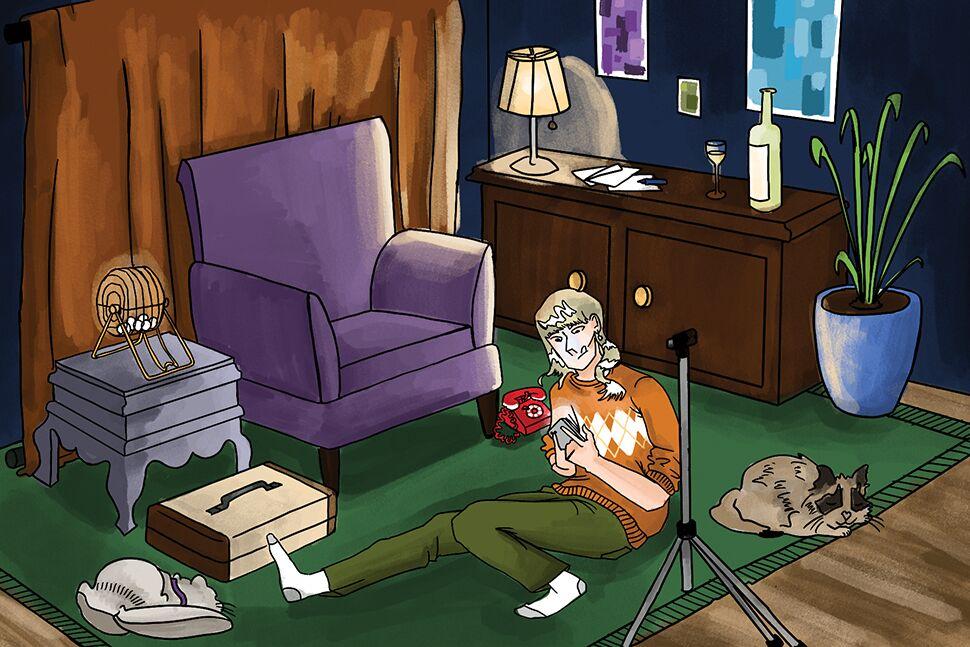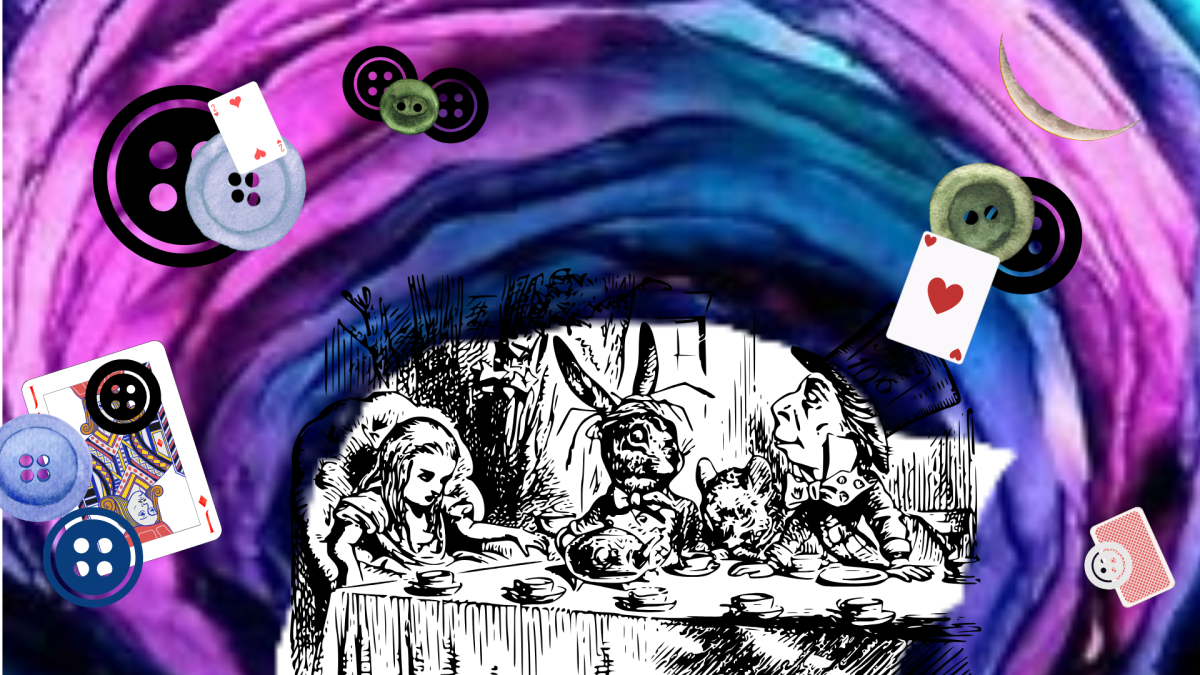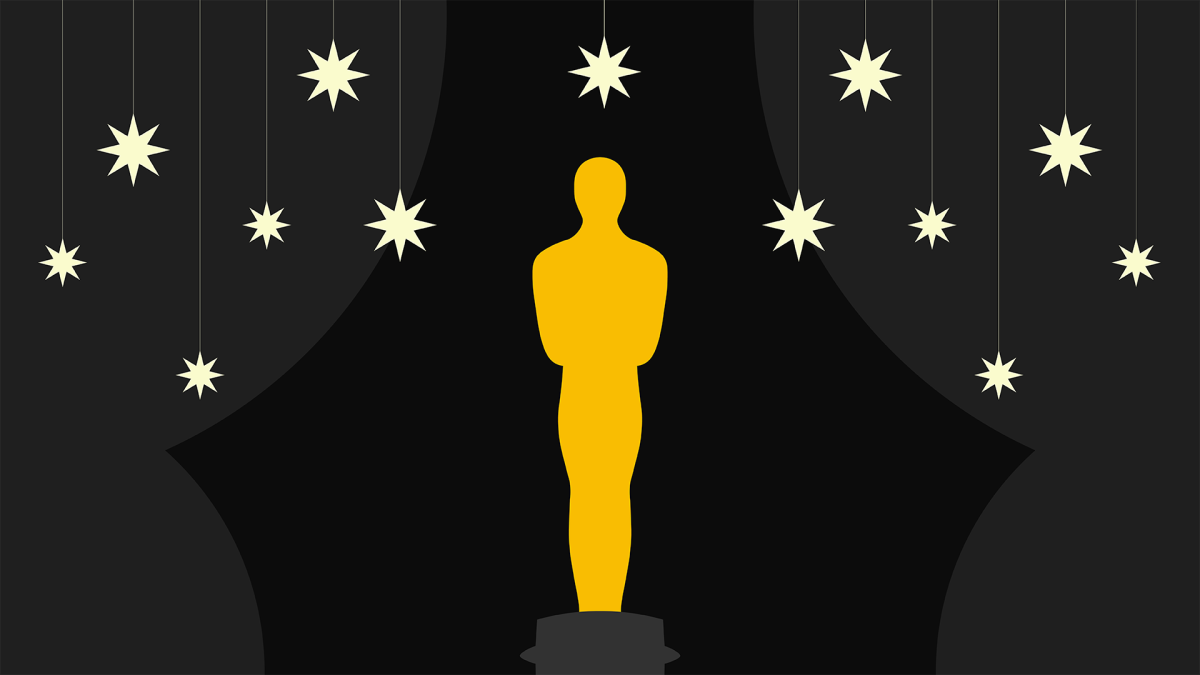Taylor Swift’s 10th studio album, “Midnights,” hit streaming platforms and shelves Oct. 21, although in true Swift fashion, this wasn’t the first fans were hearing of the artist’s newest project. For weeks, Swift had been dropping clues and song titles on Instagram and Twitter, leaving fans to do their best sleuthing and put together the pieces.
The album — which can best be described as the sultry older sister to Swift’s earlier works “1989” and “Reputation” — was an instant success, currently holding the top 10 song spots on Apple Music. This isn’t surprising to anyone familiar with the worldwide sensation whose fans are among the most passionate and loyal of any artist in history.
“Midnights” is bound to give fans of sister albums “Folklore” and “Evermore” whiplash as Swift harkens back to her earlier days as a pop princess, seemingly leaving the wistful and poetic nature of her most recent works behind. This departure came with backlash from newer Swift fans who were hoping for a continuation of the works which converted them to Swifties in the first place. Those who have been by her side for longer, however, recognize the album for what it is — a return to her roots from an older, “but just never wiser,” Swift.
This revisitation to older works is perhaps sparked by Swift’s journey to rerecord her first six albums after having her masters kept from her by entertainment executive Scooter Braun. Whatever the reason may be, the influence of earlier works in “Midnights” is undeniable.
Fans were quick to point out the similarities between opening track “Lavender Haze” and “Lover” favorite, “I Think He Knows.” In fact, connecting songs from “Midnights” to earlier works of Swift’s has become a challenge, with fans remixing tracks like “Maroon” with “King Of My Heart”, and “Anti-Hero” with “Death By A Thousand Cuts.”
This isn’t to say the album is derivative. Swift expertly blends the old with the new to create something both unique and joyfully familiar for her fans — and the album is for her fans. Those unfamiliar with the artist’s life and works might find themselves on the outside, unable to fully appreciate what is so clearly a love letter to those who have stood by Swift’s side from the beginning.
While “Midnights” is a return to the pop genre for Swift, it is also a return to the autobiographical writing she was once known for. Her last two albums took inspiration from other’s stories, blurring the lines between fiction and reality. The same cannot be said for “Midnights,” which puts Swift’s incredible songwriting to use diving into the story of “13 sleepless nights” throughout her life.
Her closeness to the stories she is telling is evident in the vulnerability of “Anti-Hero,” an introspective song which Swift says is inspired by her own anxieties and struggles with “not feeling like a person.” Similarly, “You’re On Your Own, Kid” is deeply personal, dealing with love and loss during Swift’s rise to fame, and even offering a glimpse into her struggle with an eating disorder (“I hosted parties and starved my body / Like I’d be saved by a perfect kiss”).
These songs, and the countless others on the album which are equally personal, are like a hug from the artist. Swift is a powerhouse songwriter, and one of the many reasons she has remained so relevant is because her songs feel like your own, like she’s reached into your head and pulled out the words you’ve never said aloud.
Another pair of triumphs from “Midnights” are pop hits-in-the-making “Bejeweled” and “Karma.” “Bejeweled” is “Mirrorball” all grown up and back with a vengeance, ready to protect the self-love Swift has put front and center in this song. Catchy synth beats and glittering harmonies make “Bejeweled” perfect to perform with your hairbrush microphone.
The same can be said for “Karma,” which had already inspired its own TikTok trend within hours of its release. “Karma” takes aim at those who have wronged Swift, relishing in the idea that what goes around comes around. You can’t help but dance to the song, caught up in the vibrant lyrics and production, much like listeners were caught up in “22” after its release in 2012.
The album also featured a much anticipated celebrity collab, with cult-favorite Lana Del Rey featured on “Snow On The Beach.” Immediately after the collaboration was announced, just days before the album was released, fans and non-fans alike took to the internet to express their excitement over seeing the two influential artists work together. This anticipation did not, however, exempt Del Rey from receiving the same treatment as other female artists featured on Swift’s songs.
Del Rey’s voice could barely be recognized, her harmonies easily mistaken for Swift’s own, and far from the duet fans were hoping for. This is easily the biggest miss on “Midnights.” The song’s lyrics and aesthetic gave it the potential to be one of the album’s biggest hits, perfect for a collaboration with the sultry and soulful Del Rey. However, underusing and underappreciating Del Rey’s unique voice, Swift failed to meet the expectations of hopeful fans.
Another “Midnights” collaborator who made their mark was Swift’s longtime producer and friend Jack Antonoff. Antonoff, who is known for producing albums like Lorde’s “Melodrama” and Clairo’s “Sling,” is clearly heard throughout the album with his fun and maximalist style. Two more well-known additions to the “Midnights” credits: “William Bowery,” the pen name for Swift’s boyfriend of six years Joe Alwyn, and Dylan O’Brien, the actor who recently starred in Swift’s short film. Alwyn is credited as a writer on the darling love song “Sweet Nothing,” while O’Brien played the drums on “Snow on the Beach.”
While “Midnights” was able to capture the hearts of fans immediately, it is far from a perfect album. The cohesiveness of Swift’s other works is missing, jumps like those from “Anti-Hero” to “Snow On The Beach,” and “Bejeweled” to “Labyrinth” feel sudden and out of place. This wasn’t helped by the seven surprise songs Swift dropped just three hours after the original release. Similarly, there are places where the lyrics feel surface level, like Swift couldn’t quite reach the same depth found in masterpiece “My Tears Ricochet.”
That being said, “Midnights” is still a raging success and a strong return to pop for an artist who has so consistently and skillfully reinvented herself time and time again. “Midnights” urges you to examine yourself, your insecurities and your power. It takes you on a journey through Swift’s love and loss, and keeps you dancing along the way. “Midnights” has proven why, when it comes to Taylor Swift, we’ll “meet her at midnight” every time.













